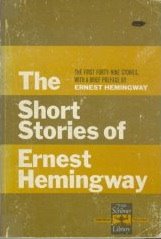 I know novels about 9/11 are nothing new, and I suspect the events and issues surrounding that day will continue to be explored for quite some time. This is the first novel I've read that involves the events of September 11, and offers a different view than what I experienced in the aftermath.
I know novels about 9/11 are nothing new, and I suspect the events and issues surrounding that day will continue to be explored for quite some time. This is the first novel I've read that involves the events of September 11, and offers a different view than what I experienced in the aftermath.Perspective is good.
A bearded Pakistani man sits at a cafe with an American in Lahore, India, and tells of his time in America. From his days at Princeton to his courtship with an American woman named Erika (whose name, I suspect, hints at the metaphoric representation of her country), to his subsequent departure from the U.S. after 9/11, the man, who goes by Changez (another phonetic name), recounts his story in painstaking detail.
The story is told in both second and first person. It is you, the reader of the novel, who is the American sitting with Changez at the cafe in Lahore. He talks to you, asks if you would like to order dinner, a drink, dessert. He makes assumptions about you and guesses your assumptions about him. It all has a very choose-your-own-adventure feel, and though Hamid's device works in theory, in practice the effect proves to be too jarring to be enjoyable. It's successful to a fault, it takes you out of the story enough to gain a fair distance from the story, and that fault is the reason I don't completely love this book.
There are some gems in the novel, and Hamid is a clever writer. The poetic passages that lace this novel kept me hoping that he would not stop the story and go into talking to me at the cafe. Changez's relationship with Erika, his longing for her, and her actions after 9/11, all seem too obvious in their attempt at allegory. Changez is like Pakistan, wanting to be allied with America, while Erika is like America, her sites set on something else, her mind in a whole different state. Erika is not grounded in the real world, she makes decisions based on imagination, and this adversely affects everyone.
It's perfect fodder for the state of the world right now. If it didn't necessarily succeed as a novel (it fell short, I must say), it's refueld my interest in current affairs, and at least motivated me to learn more about what kind of damage we are doing in the world that we have absolutely no idea about.
The Reluctant Fundamentalist asks a lot of great questions. We have turned backwards, fallen into illogical thinking, and are not looking clearly at what we are doing to the world. We move forward because we are America and we can, because we have the most powerful everything and no one can challenge us (though for how much longer, I wonder?). What The Reluctant Fundamentalist does is point out that people are hurt by us, Pakistan was hurt by America because they failed to help them (Pakistan, America's ally, was left in the cold after India threatened to invade, while America bombed the bejesus out of Afghanistan - the catalyst for this story), that racism is anything but over with, and that it's all too easy to be an American and think you are entitled, but it's the worst mistake you can make.


No comments:
Post a Comment